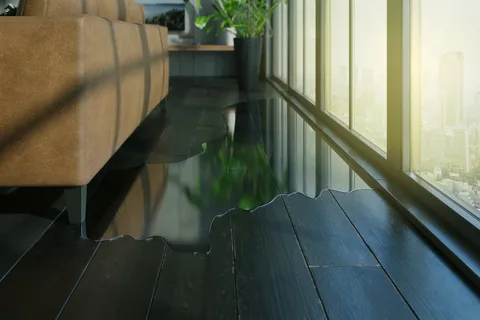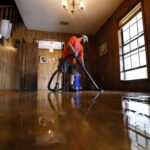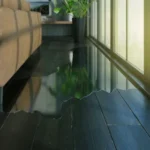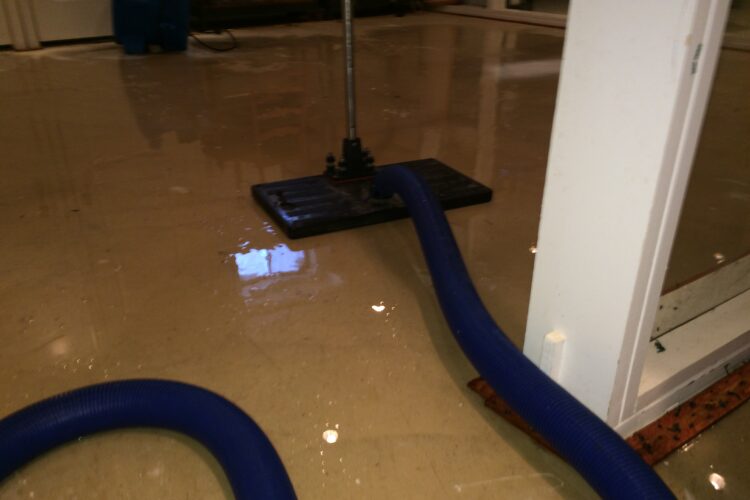
Your home needs a strong base. That base is called a foundation. The foundation holds the house up. It keeps everything safe and strong. If the base is weak, the house is weak. Cracks and breaks can start in the walls. Floors can shift or sink. Doors may stop working right. There are many kinds of water damage restoration in Miami, FL affects your home foundation. Some homes sit on slabs. Slabs are flat and made of concrete. They sit right on the ground. Some homes have crawl spaces. These are small spaces under the floor. People cannot stand in them, but they hold pipes and wires. Some homes have basements. Basements are full rooms below the house. You can walk in them. People use them for storage or living space. No matter the type, each foundation must stay dry. A dry base is a strong base.
How Water Gets In and Hurts the Foundation
Water is a quiet danger. It can slip into the smallest space. It can come from rain, snow, or floods. It can come from broken pipes or leaks. When water soaks the ground, it builds pressure. That pressure pushes on your home’s base. This push is called hydrostatic pressure. It is strong and steady. Too much pressure makes the walls crack. Water can slip through these cracks. Tiny cracks get bigger over time. Soon, the base starts to break.
Water can also come in through holes or gaps. Old seals or worn-out concrete let water in. Once inside, water spreads fast. Poor drainage makes the problem worse. If water sits near your home, it sinks into the soil. The wetter the ground, the stronger the pressure. That pressure bends and breaks your foundation. Gutters that overflow add to the problem. Downspouts that drain too close to the house cause damage too. Leaky sprinklers or hoses can also soak the soil. Even one small leak can lead to big damage.
Signs That Water Has Hurt the Foundation
Your house will show signs. You just have to look. You may see cracks on the walls. Some cracks are straight. Some are zig-zag. Both types are bad. The floor may feel uneven. One side may be higher than the other. You may feel dips or bumps as you walk. Doors may not close well. They may stick or hang crooked. Windows may jam or stop sliding.You may smell a musty odor. That smell often comes from mold. Mold grows when water sits in dark places. Basements and crawl spaces are perfect spots. You may see mold on the walls. You may feel the air is damp or sticky. These are signs that water is hiding below. Even a small crack can mean big trouble. Do not ignore it. Check your home often. Early signs help you fix things fast.
What Happens If You Ignore Water Damage?
Water damage does not stop on its own. It gets worse with time. If the foundation cracks more, the house may shift. Walls may lean or bow. Floors may sink or slope. Doors and windows may stop working at all. Water may leak into your basement often. Floods may happen after every rain. Mold will grow fast in wet places. It will spread to other rooms. It can damage wood, paint, and furniture.
Mold also hurts your health. It can cause coughs, sneezing, and skin problems. It is worse for kids and older people. A broken foundation hurts your home’s value. Buyers may not want a house with cracks. Even banks may not approve loans for it. The longer you wait, the more you pay. Big repairs cost more than small ones. It is better to fix things early.
How to Stop Water Damage Before It Starts
The best fix is to stop water before it enters. Keep water away from your home. Clean your gutters often. Remove leaves and dirt. Make sure water flows through them. Check your downspouts. Make sure they send water far from the house. Add extensions if needed.
Seal cracks in walls and floors. Use waterproof paint or sealant. Cover small holes before they grow. Waterproof your basement. Add a sump pump to move water out. Install a vapor barrier to block moisture. Check your soil grade. The ground should slope away from the house. This helps water run off instead of soaking in. Fix yard drains and make sure they work. Bad drainage can fill the soil with water. Watch your pipes. Fix leaks fast. Do not let drips go on for days. If you have a crawl space, check it often. Add a vapor barrier there too. A dry base is a safe base.
When Should You Call a Pro?
Some things you can fix yourself. You can clean gutters. You can seal small cracks. You can check drains and pipes. But some problems need a pro. If your walls are bowing, call a pro. If your floor sinks, call a pro. If mold keeps coming back, call a pro. A pro knows how to check your base. They use tools to measure damage. They can tell how deep the cracks go. They can test the soil around your home. A pro may dig around your foundation. They may add strong walls or piers. They may lift the house if it has sunk. Foundation repair is not cheap. But waiting makes it worse. Fix it now and save more later. A safe base means a safe home. Never wait too long to act.
Final Thoughts
Your home needs a strong base. Water is a quiet but strong enemy. It can break the base without a sound. It can harm your home day by day. Look for signs. Fix small problems early. Keep water far from your home. Call a pro when needed. Protect your house. Protect your family. A dry foundation is a strong one.




